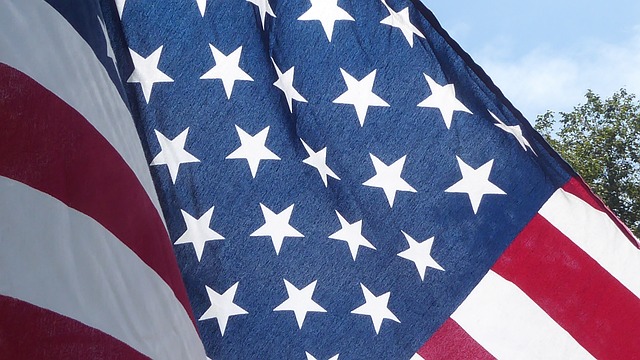What Type of Military Discharge Qualifies for VA Benefits?

Updated April 29 2024: The Department of Veterans Affairs has updated its approval policies to cover other-than honorable discharges and similar military discharges that previously did not qualify for VA healthcare benefits.
If you applied in the past but were denied benefits due to the nature of your military discharge, apply for benefits again as VA benefits approval policies have become more flexible. We have revised the article below to include the updated guidelines.
What type of military discharge qualifies for VA benefits? It’s a question many ask if they left the service without entering the military healthcare system or applying for VA benefits. If you decided later in life to explore your VA benefit options, knowing the current guidelines is a good place to begin.
Eligibility for Department of Veterans Affairs (VA) benefits such as the GI Bill differs depending upon the duration of military service, the type, and the character of the military discharge or separation.
Character of Discharge
The “character of discharge” is used by the VA to determine whether a person meets the basic eligibility requirements for VA benefits under Title 38 of the United States Code.
If a discharge is honorable, the individual satisfies the character of discharge requirement for basic VA benefit eligibility.
Some types of discharges with accompanying circumstances may bar an individual from VA benefit eligibility. Other discharges require the VA to make a character of discharge determination to evaluate basic eligibility to receive VA benefits.
To determine eligibility to receive benefits, the VA will evaluate the service record, length of service, and category of discharge. Some allowed into the VA program in spite of not havin an Honorable discharge may qualify for some VA benefits but not others, depending on the nature of the discharge and the benefits applied for.
Veterans with honorable discharge should generally expect to receive the VA benefits they qualify for. In contrast, those discharged under other categories may need to apply for benefits anew, or pursue a discharge determination for the VA to consider their eligibility.
>> Getting affordable life insurance coverage with no medical exam or labs required is easy. Get a no-obligation, free consultation to determine your eligibility.
Military Discharge Requirement for VA Education Benefits
To receive VA benefits for education benefits, including the Survivors and Dependents Education Assistance (DEA) program, the veteran’s character of discharge is required to be designated as under other than dishonorable conditions.
Related: Education Guide for Veterans and Retirees
Military Discharge Requirement for VA Compensation Benefits
To receive VA compensation and pension benefits, service members must have an honorable discharge or discharge that is not under dishonorable terms. Changes to the VA approval criteria in this area make it necessary for applicants who were previously denied VA benefits under these guidelines to apply again as the VA has made its approval policies more flexible.
Discharge Requirements for VA Pension Benefits
VA Pension benefits may be offered if the veteran did not receive a dishonorable discharge and the income meets the standards laid out by Congress.
Discharge Requirements for VA Home Loan Benefits
To receive VA home loan benefits and services, it is necessary for the character of discharge or service to be under conditions other than dishonorable.
Discharge Requirements for VA Insurance Benefits
One area where a veteran applying for benefits will not have their discharge status questioned is when they are applying for Veterans’ Group Life Insurance. For Service-Disabled Veterans Insurance and Veterans Mortgage Life Insurance benefits, the discharge reason must be designated as other than dishonorable.
For those eligible, there are various types of life insurance provided by the VA that cover veteran service members, current service members who receive SGLI, and family members of service members who receive FSGLI.
There are several types of life insurance that are available for veterans, including:
- Servicemembers’ Group Life Insurance, which applies while serving
- Family Servicemembers’ Group Life Insurance to add children and or spouse
- Traumatic Injury Protection for temporary financial support while recovering from an injury
- Veterans’ Group Life Insurance for after serving
- Veterans Affairs Life Insurance for service-related disability coverage
- Veterans’ Mortgage Life Insurance for those who need to adapt their homes to their new service-related physical needs.
Applying For VA Benefits Without an Honorable Discharge
Veterans who seek to apply for VA benefits without an honorable discharge can apply again thanks to a Final Rule published in the Federal Register in April 2024.
This revised guideline makes it possible for the VA to appove those with military discharges under Don’t Ask, Don’t Tell, and a variety of other circumstances. If you were previously denied VA benefits due to a discharge related to mental health issues, being a survivor of military sexual assualt, combat trauma, or a variety of related issues, VA encourages you to apply again for benefits as your case may be approved now depending on circumstances.
Military Discharge Upgrade Options
Some may be eligible for a military discharge upgrade that can be used to claim VA benefits, which are then reviewed on a case-by-case basis.
Those without an honorable discharge are most likely to have success in upgrading the discharge reason if the circumstances are related to the following:
- Mental health conditions, including posttraumatic stress disorder (PTSD)
- Traumatic brain injury (TBI)
- Sexual assault or harassment during military service (at VA, this is referred to as military sexual trauma or MST)
- Sexual orientation (including under the Don’t Ask, Don’t Tell policy)
How to Request a Military Discharge Review
Every branch of the military has a unique military discharge upgrade review process. Individuals seeking to initiate this process may be required to approach their branch of service or start the process on VA.gov.
The process of reviewing a discharge of character may take one year or more. To ensure the process runs as smoothly as possible, it is necessary to submit a completed application and provide evidence that supports the case.
It is important to note that every veteran filing for this service has the right to have another party advocate, either through a lawyer or a Veterans Service Organization.
What to Know
- If the veteran has served more than once or previously had an honorable discharge, in most cases, this individual should qualify for basic benefits due to the eligible service period.
- In the case of disability compensation, this would only cover the change in physical status during the honorable term of service and not during the term that ended in dishonorable or other forms of discharge.
- In many cases, a claim for benefits is the first time that the individual’s designation of “under other than honorable conditions” discharge reason will affect the veteran applicant. It is essential that the character-of-discharge issue be resolved in order for any decisions to be made on claims for compensation, pension, or medical treatment.
>> Getting affordable life insurance coverage with no medical exam or labs required is easy. Get a no-obligation, free consultation to determine your eligibility.
About the author
Joe Wallace is a 13-year veteran of the United States Air Force and a former reporter/editor for Air Force Television News and the Pentagon Channel. His freelance work includes contract work for Motorola, VALoans.com, and Credit Karma. He is co-founder of Dim Art House in Springfield, Illinois, and spends his non-writing time as an abstract painter, independent publisher, and occasional filmmaker.

